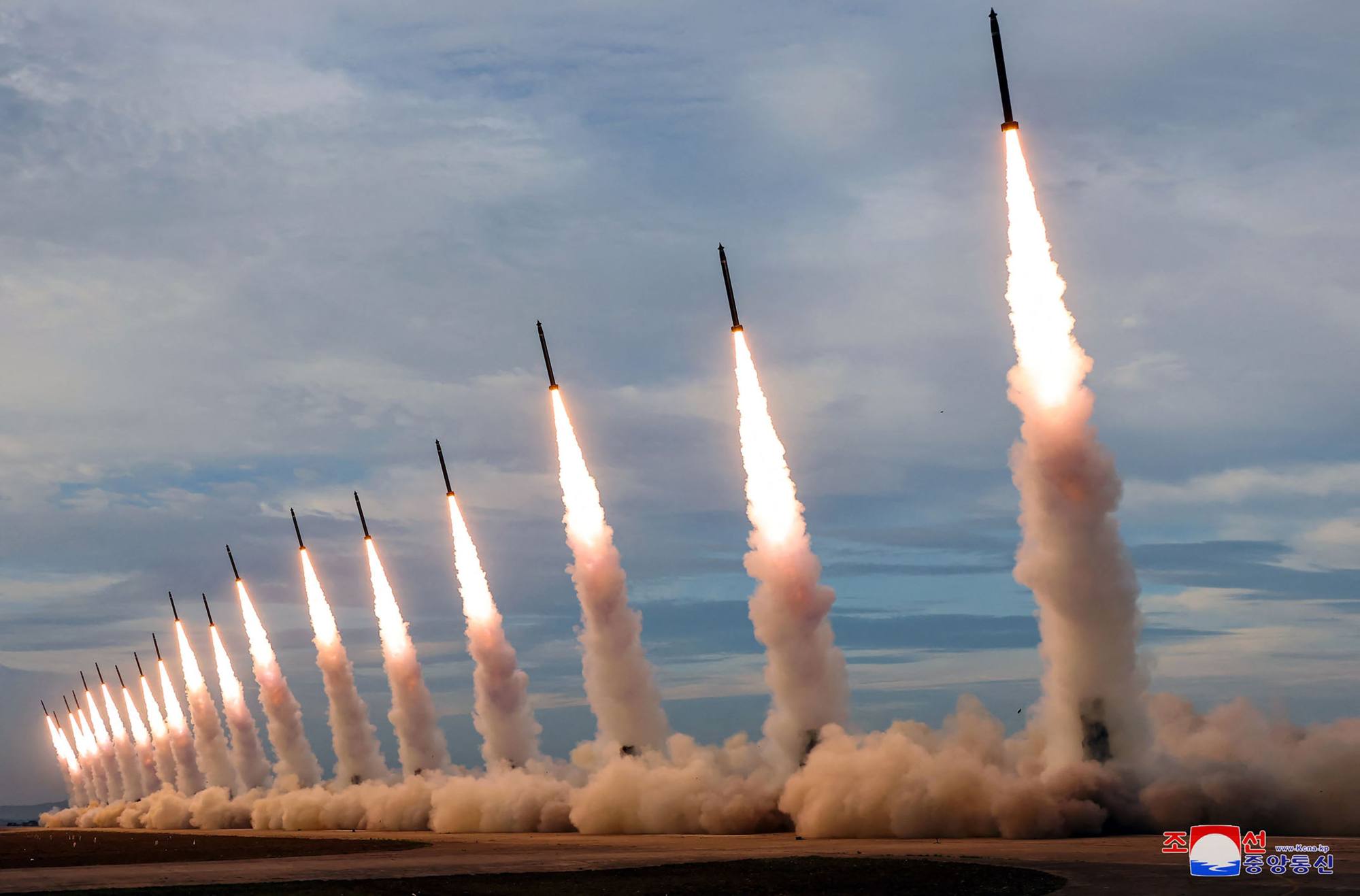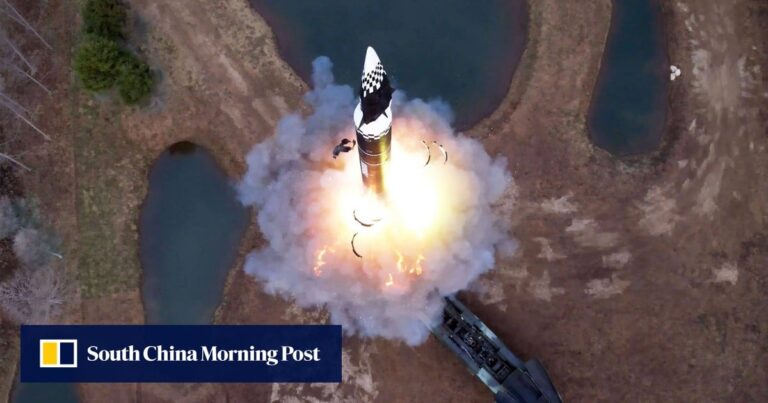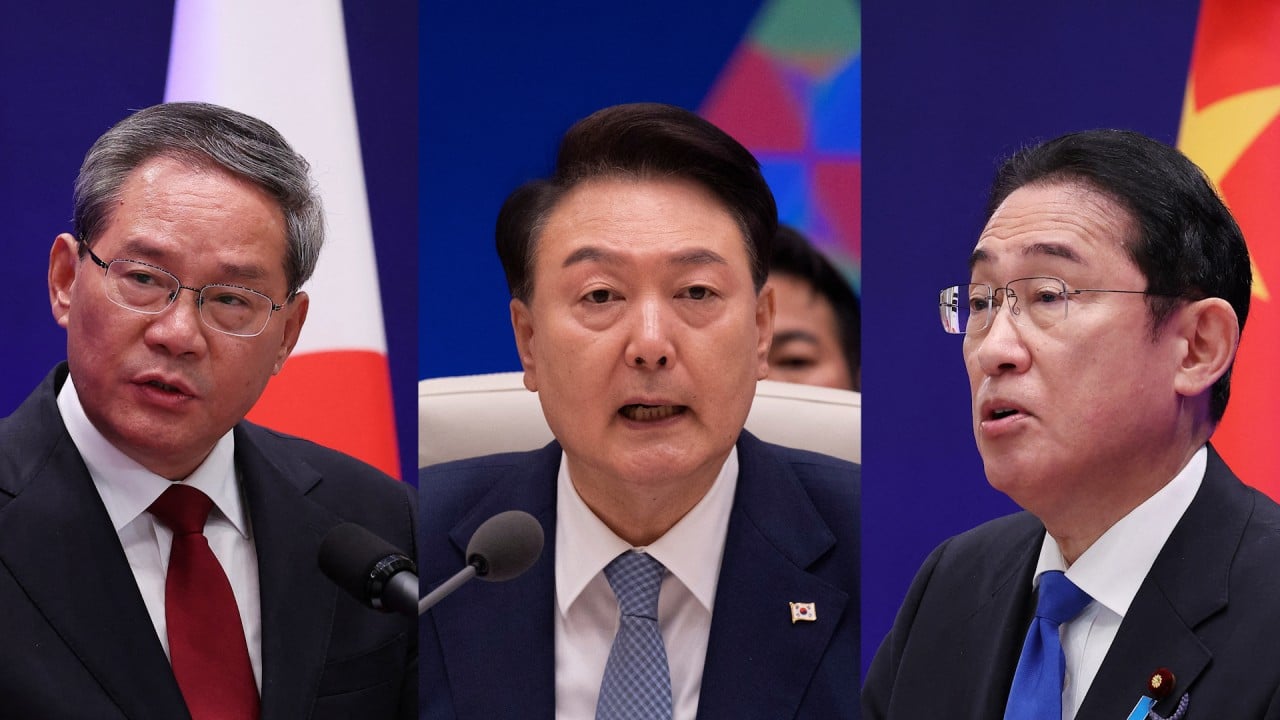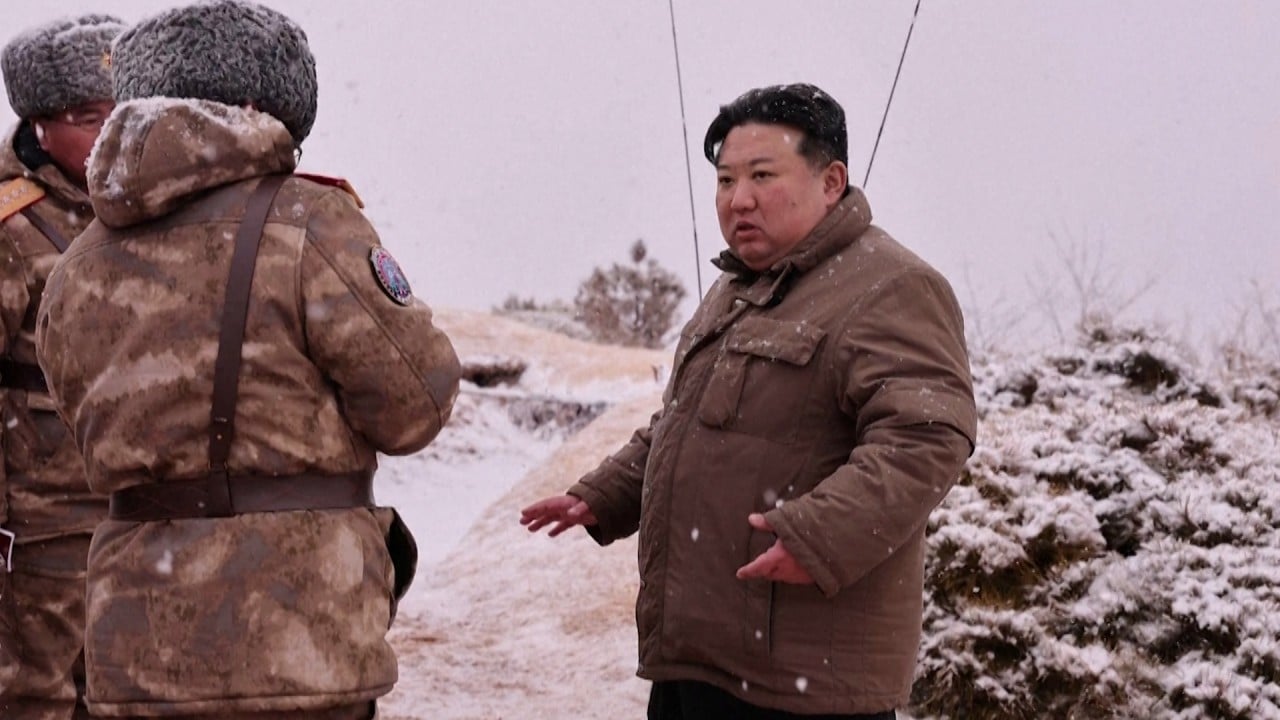Joseph Yun, a senior adviser at the United States Institute of Peace and who served as U.S. special representative for North Korea policy from 2016 to 2018, described the situation on the Korean peninsula as “dangerous.”
“I don’t think we can rule out the possibility of provocations in the near future,” he said, adding that historically, during U.S. presidential election years, North Korea has tried various things to provoke the United States, including weapons tests.
US broadcaster NBC reported last month that intelligence agencies believe North Korea may be planning the “most provocative” military action, at the behest of Putin, to “sow chaos” ahead of the November elections.
Sung-hyun Lee, a Korean visiting fellow at Harvard University’s Asia Center, said the possibility of Pyongyang and Moscow coordinating an “October surprise” was “not without merit” given the “strategic interests” of both countries.
“It’s very possible that North Korea will conduct a seventh nuclear test. Technically, North Korea doesn’t need to do that. But politically, North Korea may want to send a signal,” he said.

Beijing, North Korea’s largest diplomatic backer and economic lifeline, has long played the North Korea card in negotiations with Washington and Seoul, but its leverage depends on its ability to contain Pyongyang’s belligerence, according to Lee.
“If Washington sees that Beijing lacks political leverage over Pyongyang, it means Beijing lacks the leverage to negotiate with Washington. On the other hand, if Beijing has leverage over Pyongyang but is unwilling to use it, Washington will look for ways to pressure Beijing to do so,” he said.
Last month, China mentioned denuclearization of the Korean Peninsula in a joint statement with South Korea and Japan at the end of the first Japan-South Korea summit since 2019, angering North Korea.
North Korea condemned it, calling it a “serious political provocation and violation of its sovereignty.” China has not officially responded to the North Korean attack.
Shi Yinhong, an international affairs expert at Renmin University in Beijing, said this signaled an initial reluctance to touch on denuclearization, and that China had effectively removed it from its policy objectives in 2021 due to changes in the domestic and external environment.
“It is clear that China, which has tense relations with both Japan and South Korea, reluctantly accepted the final wording on denuclearization for the sake of the three-way summit,” he said.
“Fundamentally, all that remains of China’s policy on the Korean peninsula is to resolutely defend its alliance with North Korea and resolutely block any attempt by the permanent Western members of the UN Security Council to pass a new resolution on North Korea.”
But Beijing’s pro-Pyongyang stance has worsened relations with South Korea, which has tilted strategically toward Washington and Tokyo.
North Korea has fired more than 100 missiles since 2022 in violation of U.N. sanctions, and Beijing and Moscow have repeatedly clashed with South Korea and its allies at the United Nations over Pyongyang’s nuclear program.
According to Seok, Sino-Korean relations are unlikely to see a “significant and lasting improvement” anytime soon, despite Beijing’s efforts to ease competition with South Korea.
“For South Korea, the rapid improvement of North Korea’s nuclear and missile capabilities remains a major concern, but China doesn’t seem to care much about that, at least from a political standpoint,” he said.
Joseph DeTrani, who served as U.S. special envoy to North Korea in the six-party talks from 2003 to 2006, remains optimistic about China’s influence in North Korea, given that its trade with the country also includes supplying crude oil and petroleum products.
“China urges North Korea not to escalate tensions.” [Seoul] And we will warn South Korea against strategically aligning with the U.S. to contain China, as we did in recent trilateral talks with South Korea and Japan,” he said.
According to DeTrani, Beijing’s alignment with Moscow at the UN in opposing further sanctions against North Korea “does not mean that China is optimistic about North Korea’s nuclear and missile programs.”
“In fact, China does not want to destabilize the Korean peninsula. That would lead to destabilization in the region. Such a development is not in China’s interest,” DeTrani said.
In Yoon’s view, China “is on the side of restricting further nuclear tests by North Korea,” but Beijing is probably more concerned about the rapidly warming military ties between Pyongyang and Moscow.
“China is always wary of North Korea getting too close to Russia and wants to maintain a certain distance between the two countries,” he said.
After completing a visit to China in May, Putin visited Pyongyang for the first time since 2000 last month and signed a mutual defence pact with Kim, reviving a Cold War-era promise to provide “military and other assistance” in the event of war.
Kim pledged his “full support and solidarity” with Putin in his response to the war in Ukraine and said the deal elevated ties to the level of an alliance at a time when the two countries face increasing conflict with the West.
Kim Jong Un, who made an extraordinary trip to Russia’s Far East in September to meet with Putin, hailed ties with Moscow as his country’s “top priority.”
The visit marked a significant boost to military and economic cooperation between the two countries, with North Korea reportedly supplying conventional weapons to support Russia’s war in Ukraine in exchange for military technology and economic aid.
“North Korea has historically been good at manipulating great powers and toying with China and Russia, so this is really a question of strategic balance between the three countries,” Yoon said.
In another sign of Pyongyang’s growing closer to Moscow, China’s communist neighbor switched its state television transmission from a Chinese to a Russian satellite following Putin’s visit.
According to a Chinese statement, China and South Korea held their first vice-ministerial-level diplomatic and security dialogue in Seoul last month to coincide with Putin’s visit to Pyongyang, with both sides saying that “the top priority is to calm the situation and avoid escalating conflict.”
In a statement, South Korea’s Foreign Ministry urged Beijing to play a constructive role in promoting peace and stability on the Korean peninsula, and warned that tensions fuelled by military cooperation between North Korea and Russia were “contrary to China’s interests.”
According to South Korean newspaper Hankyoreh, Chinese Vice Foreign Minister Sun Weidong, who led the “2+2” talks, said China hopes exchanges between North Korea and Russia will contribute to peace and stability in the region.
DeTrani also expressed concern about North Korea’s close ties with Moscow, but was skeptical about the possibility of a seventh nuclear test by North Korea, given China’s apparent influence over Kim Jong Un and its opposition to any new nuclear tests.
But if the war in Ukraine continues and North Korea continues to provide military support to Moscow in exchange for technical assistance on its satellite and weapons programs, “we will likely see more provocative behavior from North Korea,” he said.
According to Woo-yel Baek, associate professor and deputy director of the Institute of North Korean Studies at Yonsei University in Seoul, growing military cooperation between North Korea and Russia has put China in a serious dilemma in Northeast Asia.
“For the first time, China and Russia have different views on the stakes in the North Korean nuclearization game,” Baek said.
“Russia has some positive aspects. [if] “There is a very high-risk aspect to China stockpiling nuclear weapons in North Korea and using them as a bargaining chip. At the same time, China is not only tolerating this destabilizing security environment, it is suffering from it.”
Baek also noted that China has barely mentioned the denuclearization of the Korean Peninsula in recent years, suggesting this is because China is powerless to do anything about the situation amid the current security environment and conflict with the United States.
“China does not want to destabilize Northeast Asia, but [has] “We are already moving toward treating North Korea’s nuclear status as a default condition, not a variable,” he said.
“Unlike Russia, China does not support North Korea, but it has remained reluctantly silent on the issue so as not to antagonize North Korea too much.”
Most experts were pessimistic about the prospects for resuming direct disarmament talks between Pyongyang and Washington, especially without Beijing’s support.
“I don’t see any chance of resuming denuclearization talks between North Korea and the US in the near future. There may be a slight chance once Donald Trump is back in the Oval Office this November,” Baek said.
But in DeTrani’s view, complete and verifiable denuclearization of the Korean Peninsula remains a viable option in future negotiations, even if it may be a long process.
“China will support this process. With the possible exception of Russia, North Korea’s future is more consistent with an alliance with China and a path toward normal relations with the United States, South Korea and Japan,” he said.
“We should not give up on peacefully resolving the issues with North Korea,” DeTrani added.
Li, of the Harvard Asia Center, said China should consider resuming the Six-Party Talks, a set of negotiations it helped launch in 2003 aimed at ending North Korea’s nuclear weapons program.
“This move will be welcomed by Washington, Seoul and Tokyo and will benefit China by eliminating the tendency to create a Cold War-like structure with Washington, Seoul and Tokyo on one side and Beijing, Pyongyang and Moscow on the other,” he said.



